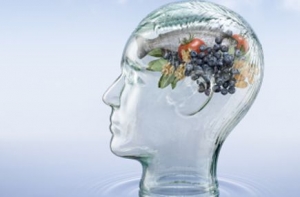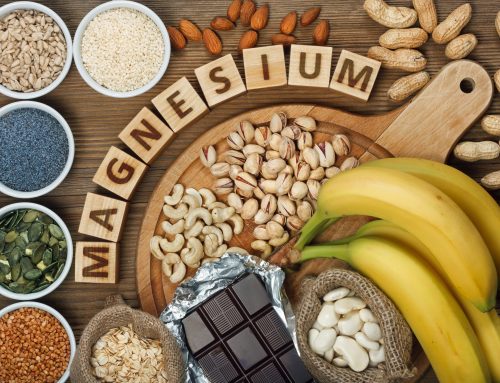First good food for the brain is Berries. Berries are full of memory-boosting nutrients. They are a rich source of anti-oxidative compounds like vitamins C, E, beta-carotene and other nutrients that can help curtail the circulating free redials in our body’s systems.
Research has shown that beneficial chemicals like ellagatannis in raspberries, strawberries, and blueberries is found in the part of the brain called the hippocampus, and the brains memory control centre. Blueberries can help with spatial memory, as they contain proanthocyanins which gravitate towards the striatum of the brain.
Next food is Cherries. They are nature’s own anti-inflammatory pills. They contain the Cox 2 inhibitors similar to those that are commonly found in pain medications such as Vioxx and Celebrex. They also contain polyphenols that help keep platelets from clumping together in the blood, hence are a prevention in heart attacks and strokes
Next is Apples. That old adage ‘an apple a day keeps the doctor away’ is right on target. They contain a group of chemicals that could protect the brain from the type of damage that triggers neurodegenerative diseases such as Parkinson’s and Alzheimer’s. Apples are part of the ‘Dirty Dozen’, so just make sure you look at organic apples or use a wax cloth or soak them in apple cider vinegar to remove toxins that might accumulate in the process of getting them to the shelves of the supermarket.
Curries are great. They contain Tumeric, the yellow spice found in many curries, which is a powerful anti-inflammatory and antioxidant properties. One study has shown a reduction in beta amyloid deposits, which are responsible for the plaques associated with Alzheimer’s.
Fourth on the list is Eggs. The egg has for the past 20 years has received bad press due to its cholesterol rich yoke and the association with dietary cholesterol and heart disease (Cholesterol has yet to be proven as the root of heart attacks). The yellow yolk of an egg contains one of the most important nutrients for the brains: choline. Getting adequate levels of this nutrient, especially early in life – during fetal development and early childhood – may help us learn more readily and help with the retention of new material. Sufficient choline intake daily may give us the building blocks we need to help keep our memory intact for when we age.
Oily Fish is one of the best foods for our brain. It contains the highest source omega 3 fatty acids which are thought to be instrumental in maintaining brain function from an early development throughout life. And the fish highest in these omega-3 DHA is sardines, followed by fresh salmon and tuna (not the tin varieties, as this can lead to heavy metal poisoning). The fatty acids in fish go straight to the synapses of nerve cells, so they play an important role in how neurons communicate with one another.
Another seafood that you either love or hate is Oysters. They contain both iron and zinc, which helps in nourishing the brain and the memory of the brain. Decreased iron and zinc levels have been associated in many studies with poorer mental performance in children. But these nutrients in adults also help keep adult’s minds sharp. Low iron reduces the adult’s ability to concentrate, and lower levels of zinc slowed the test participant’s ability to recall words.
Chocolate is good for the brain and for taste buds. But what we are talking about here is Raw Cacao before it has been processed into cocoa and the cadburys chocolate blocks. Several studies have shown that eating flavonol-rich cacao can improve blood vessel function, boosting circulation throughout the body and blood flow to the brain. The beneficial compounds may even reduce the formation of damaging clots, which can cause heart attacks and strokes.
Avocados are an excellent source of good fats for the body that can increase the blood flow to the brain. Hence more oxygen and more nutrients will be carried to the brain which can translate in to better thinking and recall of details. They also contain and entire host of minerals including iron and copper which can prevent anemia and aid in the renewal and repair of blood cells.
Last food for the brain is cereal grasses like barley grass and wheatgrass (juiced or in a powder form). These are classified as ‘nutrient dense’ foods, as they are highly concentrated green foods that contain abundance of phytonutrients and antioxidant properties that are highly beneficial for the body.
Here is a wonderful tasting Superfood Smoothie to transform your morning that includes some of the foods listed above and that will kick start your brain power.
This recipe makes 2-3 glasses.
Step 1: The Milk
• Soak a small handful of raw organic almonds overnight and in the morning throw them into the blender with 2 cups of water
• Blend on high speed until the almonds have been completely broken up and the water will turn into white frothy milk (yum)
• For a smoother consistency you can strain the almond milk and discard the pulp.
Step 2: The Smoothie
Add in the following ingredients to the Almond Milk:
• 1 small avocado or 1 banana or half of each
• 1 heaping tablespoon of Superfood Greens Powder
(You could also try Barley Grass or Wheat Grass Powder)
• 1 tablespoon of Raw Honey or Agave Nectar
• 1 tablespoon of Bee Pollen
• 1 tablespoon of Raw Cacao Powder
• 1 tablespoon of Maca Powder
• 1 tablespoon of Chia Seeds or Hemp Seed Protein Powder
• 1 cup of ice
Blend all of the ingredients together and drink immediately!
If you would like more information or would like to book an appointment at Neurohealth Chiropractic – please call the clinic on 9905 9099 or email us admin@neurohealthchiro.com.au or fill in the contact form from our website www.neurohealthchiro.com.au
Sign up to receive Neurohealth Chiropractic’s Free monthly health newsletter on the Right Hand Side of this page. Filled with great information and lots of easy health tips to keep you at Optimal Health!




